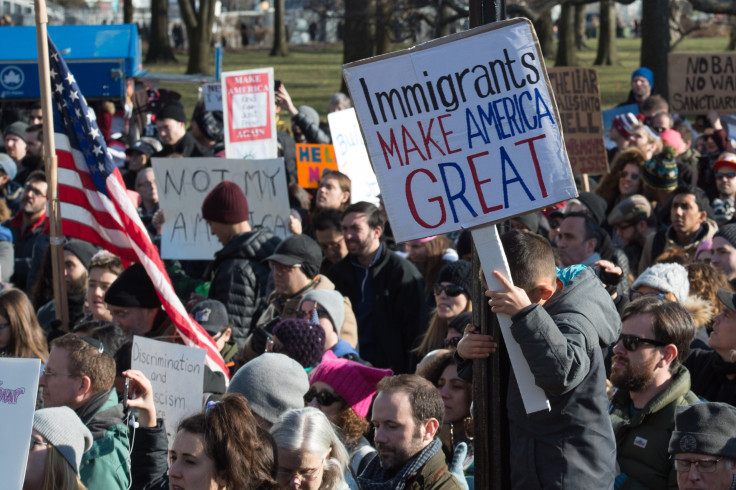DOJ Wants Supreme Court To Revive Trump's Travel Ban: What It Means For America's Muslims

The Trump administration has formally filed a petition in the Supreme Court to hasten the process of travel ban hearing so that arguments can be made by the start of the next term and, the court can soon arrive at a decision.
“Regardless of whether a stay is granted, the government respectfully requests expedited briefing and consideration of its petition for a writ of certiorari," the Trump team stated on the matter, Thursday, Washington Examiner reported. "In that manner, if the petition can be considered before the Court adjourns, and if the Court grants review, merits briefing could be completed by the beginning of the next term, thereby avoiding further delay in the final resolution of the exceptionally important issues presented."
According to the petition, the Supreme Court has also been asked to review the block placed on the travel ban by the lower courts and determine if the ban violates Establishment Clause of the Constitution.
Authorities have condemned President Donald Trump’s pursuit of controversial policies. The American Civil Liberties Union (ACLU) tweeted saying Trump’s insistence on legalizing the travel ban at any cost is unconstitutional.
BREAKING: Trump administration asks Supreme Court to review Muslim ban case. We will defend our victory and the Constitution.
— ACLU (@ACLU) June 2, 2017
Washington Gov. Jay Inslee also lashed out at the Trump administration taking the travel ban fight to the Supreme Court. The Supreme Court would see the truth behind the travel ban, he added.
The Courts won't ignore the truth. Trump's travel ban intent was clear. Washington state will always pursue justice and freedom for all.
— Governor Jay Inslee (@GovInslee) June 2, 2017
Bob Ferguson, Attorney General of Washington, also agreed with Inslee’s stance toward reviving the travel ban.
— Attorney General Bob Ferguson (@AGOWA) June 2, 2017
By taking the matter to the Supreme Court, the Department Of Justice would be delivering on the promise Attorney General Jeff Sessions made on May 25, after the 4th Circuit Court of Appeals ruled to keep the block on the travel ban by virtue of a second executive order.
“The Department of Justice strongly disagrees with the decision of the divided court, which blocks the president's efforts to strengthen this country's national security," Sessions said in a statement, according to a Washinton Examiner report.
JUST IN: AG Sessions says they will be taking the travel ban case to #SCOTUS. pic.twitter.com/u5Hlt5LOOe
— Chris "Subscribe to Law Dork!" Geidner (@chrisgeidner) May 25, 2017
In this regard, nine justices will be weighing in on every perspective regarding the travel ban, including the harsh discourse used by Trump himself during his campaigning days. If five votes out of nine rule in favor of the ban, it will be put into effect immediately, Reuters reported.
5 of 9 votes are needed for an emergency application to be granted. If Trump gets them, the ban would go into effect
— Lawrence Hurley (@lawrencehurley) June 2, 2017
The ban was blocked by lower courts, which concluded that it discriminated against Muslims. According to the ban, people from Iran, Libya, Somalia, Sudan, Syria and Yemen will be unable to enter the United States for 90 days. While the travel ban is in place, the Trump administration will work towards devising stricter visa screening of people coming from the six Muslim-majority countries, CNBC reported.
Muslims and non-Muslims who are have permanent American citizenship but are flying in from any of the banned countries, during the specified time frame, will be allowed to enter the U.S. but might have to go through extreme security checks to be declared clear of any "serious security threats," the Guardian reported.
Originally there was a confusion regarding Muslims from the six listed countries who have dual citizenship. It was later clarified by Customs and Border Patrol that they would be treated on a case by case basis, depending on whether they possess a passport of a country that is not banned by the executive order.
Apart from that, if the travel ban goes into effect, the U.S. would put Syrian refugee program on hold indefinitely and also ban refugee admissions from other war-torn countries for a period of 120 days.
© Copyright IBTimes 2025. All rights reserved.






















